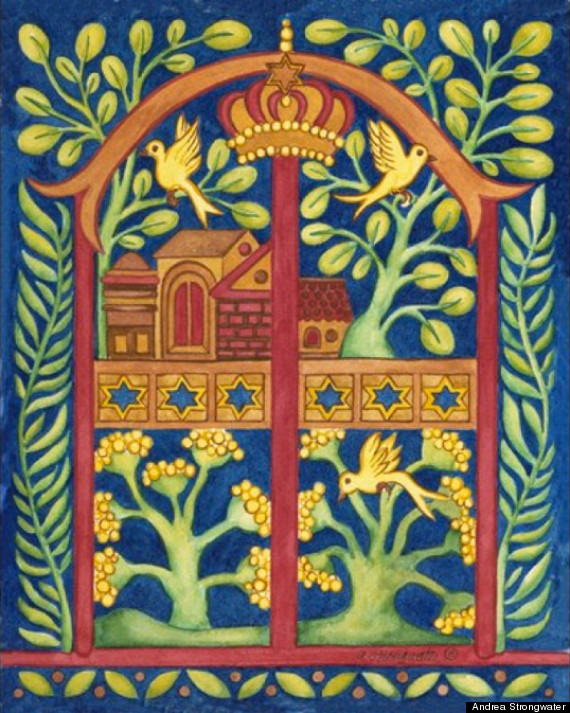April 19 is a day set aside to remember the Holocaust. Many of my friends ask me to call the day Yom HaShoah -- the Hebrew words for Holocaust Memorial Day -- but I believe this is not a day to set Jews and Hebrew speakers apart from the rest of the world, leaving others to wonder just what Yom HaShoah means. It is a day everyone should remember the horrors of separating and eliminating from the earth an entire group of people -- in this case European Jews who were targeted for death by a Nazi policy that wanted to make Europe free of all Jews.
This is a day to think about my grandfather's three sisters who stayed behind in Bialystock, were murdered in 1943 and likely saw their synagogue burn down with 1,500 to 2,000 Jewish friends and relatives locked inside. I wonder what made them stay in Bialystock after their nine brothers and one sister left for England and America. Did they choose to stay or were they lacking the resources to leave? And if they chose to stay as so many others did, what was there that kept them there? What was life in Bialystock like? There must have been a good life of some kind. I wonder if they had the creative gene that flows through my family of photographers, art directors, glove makers, packaging designers? Or did they follow the other line of doctors and lawyers? All of us entrepreneurial. Did my great aunts paint? Embroider? Write? Decorate and maintain warm and wonderful homes? I can never know all the details but I can research and re-create in paintings what I glean from texts and old photos. What I see is a rich culture rooted in Europe with all its alternating welcomings and banishments where Jews made up an important part of everyday life for all. Erasing 6 million Jews damaged all of European culture -- the arts, business, social life. A few mad men were allowed to destroy the people and rich culture that made up so important a part of European life.
We also need to remember the non-Jewish people whose lives were destroyed by the insanity -- a friend whose childhood was turned upside down when her family was hunted out of their home. They aren't Jewish but were living in a place where their ethnicity wasn't wanted. Her brother saw his Jewish friends being sought out for beatings and death and was unable to speak about it until he was in his seventies. He locked up those memories for decades and created an armor for himself that surely took away from many of the pleasures he could have enjoyed. In that family also is a fine strain of creativity that no longer contributes to European culture. Another non-Jewish friend whose grandfather was a high ranking official in Poland escaped with her family when she was a small child. She remembers the cattle car they left in. I think about what they could have contributed to society in Poland and remember the gaping hole that is left by annihilating specific groups.
I also remember what we now call Righteous Persons -- those who helped Jews, saved them from death camps, supported them in hiding, aided them in leaving Europe, Jews and non-Jews, some of them members of my family.
For me, this Remembrance Day is for all the Jews who died, all the people whose lives were destroyed and the European civilization that cut off its nose to spite its face.
For me, painting synagogues is a way to remember all the good things that were erased by the Nazis and related parties. I think we must light candles for our dead and missing but also we must remember the larger culture, its joys, its beauty, its diversity that must never again be diminished by selecting a part for annihilation. For decades the pendulum has swung in the direction of sorrows. This year, I am choosing to remember what was lost and try to bring it back to its place in history where not just the murders will be remembered but the culture that thrived and left Europe impoverished when it was destroyed.
